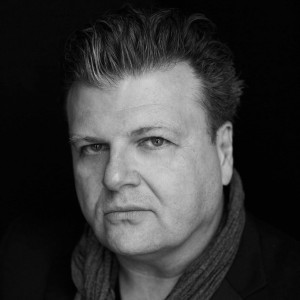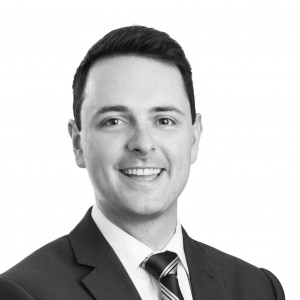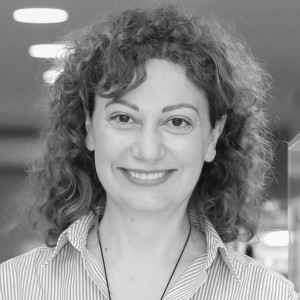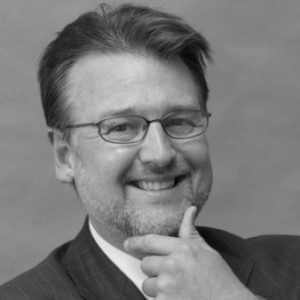Despite humanity’s ongoing confrontation with the coronavirus, the 2021 Innovation Workshop is proud to welcome as many international mentors as in the event’s pre-COVID era. For this brief introduction, we talked to five of them, and here is what they had to say about the IW format, innovation startups, communication skills, and how they see a mentor’s job.
Kip Stevenson
“The semiconductor industry is driven by Moore’s law, pushing everyone to put out new and better microchips every two years, which is a true innovation challenge,” says Dr. Stevenson, who has a background in physical chemistry and has worked for 16 years at Intel. “It’s a very stressful environment, and a huge challenge,” he adds, noting the parallel to the Innovation Workshop format.
“In the IW, Master’s and PhD graduate students are challenged not to work on a degree topic but to solve a technological problem similar to a task being assigned in a company. No one’s telling you to do something specific. They are asking you for a ‘recommendation’ on a ‘best’ approach to solve a problem. Say, you need to double microchip performance within two years, sure, but what is the true performance metric? Is it Reliability? Quality? Speed? The problem is ambiguous, and there is no one right answer, unlike in fundamental science. You consider cost, effort, technological gaps, and do your best. This is very different from coming into an established — and possibly funded — line of research of a well-known professor and following that path.”
Dr. Stevenson sees the IW environment as a “good pressure cooker” where students have to form teams and “maybe it’s not always the most comfortable role or topic that they get, but it gets the job done. This is what the environment forces. They have to find out ways to solve problems and communicate solutions, for example, to senior management, like in an industrial setting. They need to state the value proposition of their technology,” he explains, saying it makes IW a valuable experience.
“I really like ideas,” Dr. Stevenson goes on. “And I think the best way to refine them is to bounce them off people, to have an exchange with experts and nonexperts alike. Find ways to convince skeptics and decision-makers that an idea is worth pursuing.”
This is not the first time Dr. Stevenson will be providing mentoring at IW, and he says he finds the experience rewarding, “It’s great to provide feedback to those solving the problems of the future. I don’t consider myself judging: I ask questions and provide feedback, share experience and offer help.”
Gerard Michael MacCarthy
With a career spent between the investment/innovation world and the film and music industry, Gerard stresses the need for IW participants — and anyone else, really — to expose themselves to diverse external influences: “I like the variety you get to experience at events like the Innovation Workshop. Students need that. New experiences are crucial. They create new synapses. The process of getting to know new things literally broadens the mind.”
Many of Gerard’s insights are from his time running the Irish Government innovation and investment agency Enterprise Ireland, in Russia. He also regularly participates on the panel selecting the most promising startups at the Russian Venture Forum run by Pulsar Capital.
He continues, “Any innovator starting out needs to adapt to the crazy variety of life and be able to communicate well.” As with many of the IW mentors, the conversation turns to soft skills soon enough. “Highly intelligent people are not always the best communicators, but many successful people are actually introverts who learned to be extraverts.”
“To impress people and raise funds as a startup, you need to be able to explain your project in a simple but inspiring way to an investor, or you won’t get very far. You’ve got to sum up the product, the market, and the team, with energy and enthusiasm, whether your project is about organic farming or AI-generated datasets,” Gerard adds.
Besides embracing life’s diverse possibilities and working on communication, Gerard brings up the culture of failure: “Part of my message is: Don’t be afraid to get out of your comfort zone. That’s where things get really interesting. Failure culture is embedded in the venture capitalist community — perhaps even a bit too much. But overall that is good: Disasters have always been the best lessons for me — you come through at the other end, living and breathing, to start all over again fuelled by some blind belief.”
Ian Gillmor
With his background in commercial real estate, a very fast-paced and entirely commission-based industry, Mr. Gillmor puts a prime value on teamwork and being able to communicate with people of different personality types. It is a soft skill that he thinks technical experts do not necessarily always have.
So what Mr. Gillmor wants to bring to the table is not the technical expertise as such, but the emphasis on soft skills. “Innovation is amazing, and considering the global problems facing us, innovators are just the people we need, and I find it great what Skoltech is doing in that regard. But it’s not enough to innovate — you also have to communicate, show off the value, convince the end user. You sell your product again and again: to your team, to the judges, to the end user. You have to be able to see the product through that process and get it across to the end user. And on a tight schedule, too.”
Mr. Gillmor likes the Innovation Workshop format because it mimics real-world pressure. “IW is not about creating the next big solution to every problem. It’s about seeing a project through, from start to finish. It lets the students test what they’ve learned. On a tight timeline, they give it their best and figure out places where things might fall apart. It might have to do with things they have not thought about. A lot of this comes down to soft skills. A team may be very skilled technically, but when put under pressure, they discover faults. Communication faults, maybe. Perhaps there’s conflict between — or within — teams. And that means valuable experience, because it means room for improvement.” In this situation of potential conflict, Mr. Gillmor sees himself as a facilitator and guide to the students. “And perhaps something of a devil’s advocate asking the tough questions,” he adds.
Arpi Karapetyan
Following the one-year hiatus due to the COVID pandemic, Ms. Karapetyan says she is happy to participate in the Innovation Workshop again: “The experience at Skoltech last time was among the brightest I had. I really enjoyed both the students and the faculty, and their bright, out-of-the-box thinking.”
As someone involved in a number of youth development activities and with many startups, Ms. Karapetyan praised the format of the event: “I think there are three things in the formula that work: dynamics, speed, and diversity. You can really brainstorm ideas; and the space, the distribution of time — I can compare it to what happens in the best innovative startups. It’s very productive and efficient. I don’t know what I would change about it. I love it.”
As an entrepreneur currently running two companies and deeply involved in HR, a coach and a consultant that has worked with some 2,000 businesses over the course of her career, Ms. Karapetyan “has a lot of hats” that “will contribute to finding the right question and directing the IW teams to succeed,” whether as a mentor, a coach, a consultant, or even a psychologist. “Depending on the story, I will use different approaches to contribute my knowledge and experience,” she adds.
Kendrick White
Kendrick White, the founder and CEO of Marchmont Capital Partners, who will be joining the Innovation Workshop for the third time, says he really enjoys working with young innovation entrepreneurs in Russia and helping them understand how to develop their ideas. “A lot of young people have ideas and a lot of energy, but they don’t have the wisdom to actually bring those projects to life. I do — I have a lot of experience working with early-stage projects, as an angel investor and venture capitalist, and I’m very excited to bring that unique experience to the table at Skoltech,” White says.
To him, working with IW participants is a two-way street: “As an investor in tech, I’m trying to understand tech trends — in artificial intelligence, machine learning, quantum computing. These things are all advancing very quickly, and the students at Skoltech bring advanced scientific knowledge to the table. I’m excited to learn about those trends, see those new products being developed,” he adds. White also points to the other mentors as “his clan” of like-minded people from all over the world, enjoying the camaraderie of working together.
“I think the beauty of the program at Skoltech is that it really helps to bridge that difficult “death valley,” where you have an idea but you don’t know how to get the funding for it, or how to get the right advice for it. The Innovation Workshop program is particularly valuable for the students because they get to speak with angel investors, experienced venture capitalists, and representatives of the industry. And I think it mimics real life: Each team is going to have a number of mentors with their own experience. The mentors may not give the same advice, and the students have to think which advice they are going to follow,” White notes.
Contact information:
Skoltech Communications
+7 (495) 280 14 81





